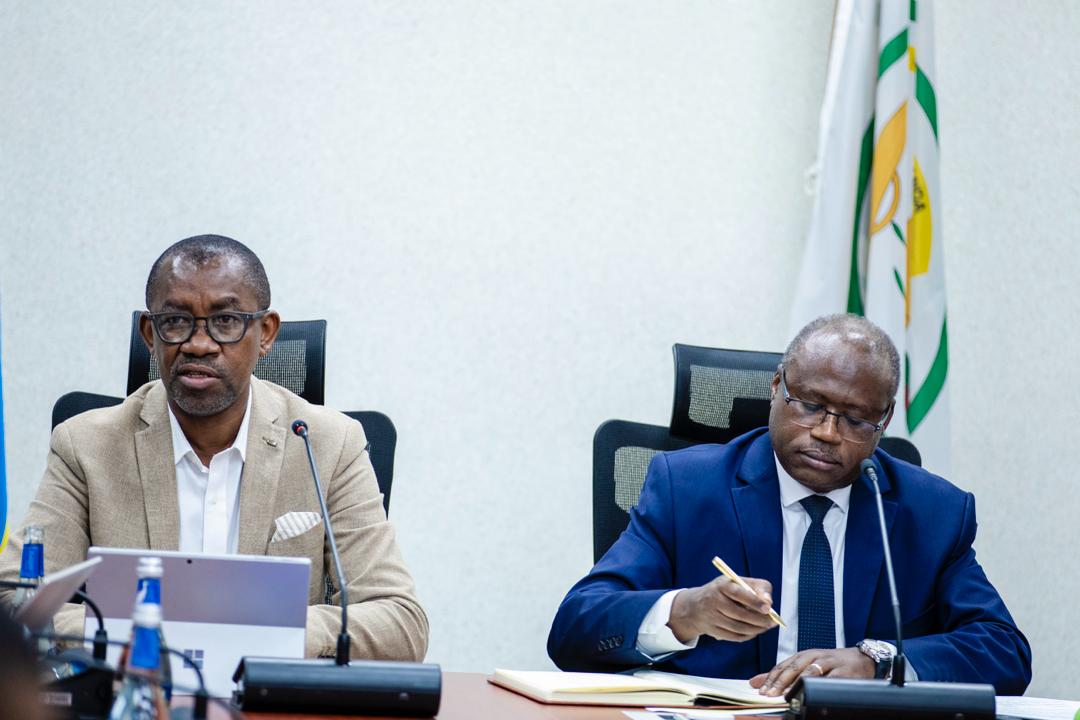Rwanda’s tax administration landscape is witnessing a significant transformation with the recent issuance of Ministerial Orders aimed at enhancing tax compliance and transparency.
These orders introduce innovative measures to incentivize taxpayers and streamline the voluntary disclosure process.
Below, Taarifa breaks down important aspects of the new law.
Scope of Application
First of all, the Ministerial Orders apply to a wide range of taxpayers, including both registered and unregistered entities with the Tax Administration.
Specifically, they encompass scenarios where taxpayers voluntarily disclose previously unpaid taxes, irrespective of whether they were registered or notified of an impending audit.
Requirements for Voluntary Disclosure
Secondly, to qualify for voluntary disclosure, taxpayers must submit an application specifying the relevant tax type and period, accompanied by supporting documentation indicating the tax amount owed.
Notably, voluntary disclosure does not entitle taxpayers to refunds of input tax or tax credits, and the disclosed tax period must precede the deadline for tax declaration and payment.
Period and Modality of Voluntary Disclosure
Another element in the law is that Taxpayers retain the right to make voluntary disclosures at any time, following the expiration of audit powers, or within a specified period announced by the Minister in charge of taxes.
Applications for voluntary disclosure are submitted through an online system established by the Tax Administration, ensuring efficiency and accessibility for taxpayers. Voluntary disclosure, however, will be a one-off opportunity that will open within a specified period of time which is at the discretion of the Minister of Finance.
Decision Communication and Tax Payment
Note that, upon receipt of a voluntary disclosure application, the Commissioner General assesses the taxpayer’s eligibility and responds within 30 days.
Approved taxpayers are required to pay the disclosed tax amount within 30 days of approval.
Alternatively, taxpayers may request installment payment options, subject to valid reasons and a six-month repayment period. This will allow a wide range of taxpayers who meet eligibility criteria to disclose undeclared and unpaid taxes and remit it to RRA without paying penalties and interests of late payments – this will exclude those who were notified of an imminent tax audit.
Revocation and Administrative Appeal
Meanwhile, the Tax Administration serves the right to revoke voluntary disclosure incentives if taxpayers fail to comply with payment obligations or provide false information.
However, taxpayers have the right to file an administrative appeal within 30 days of revocation, with decisions communicated by the Commissioner General within the same time frame.
Language Provision and Entry into Force
These Ministerial Orders were drafted in Ikinyarwanda and English, respectively, underscoring Rwanda’s commitment to linguistic inclusivity.
They come into force upon publication in the Official Gazette, with immediate effect on tax compliance procedures.
Enhancing Taxpayer Rewards with VAT Rebates
In parallel with the voluntary disclosure incentives, Rwanda introduces a Value-Added Tax (VAT) rebate system to incentivize consumers who actively request and receive electronic invoices.
Under this scheme, consumers receive a reward equivalent to 10% of the VAT amount indicated on the invoice, with additional rewards for cases where invoices are denied.
Eligibility and Period for Reward Granting
To qualify for rewards, consumers must register for the VAT reward system and provide relevant personal and contact information.
Rewards are deposited quarterly into designated mobile money or bank accounts within 15 days of VAT declaration, subject to verification and compliance with eligibility criteria.
Some eligibility criteria to qualify for voluntary disclosure include; when the disclosed period is no longer auditable, when you have not registered on some tax types and when you have not registered at all in the tax administration.
Integration and Oversight
Rwanda Revenue Authority and financial institutions facilitating payment are mandated to integrate their systems within 90 days to facilitate seamless reward processing.
It should be noted that, additional measures may be implemented to prevent abuse and ensure the integrity of the reward system.
These initiatives mark a significant milestone in Rwanda’s ongoing efforts to promote tax compliance, transparency, and accountability, aligning with broader national strategies for economic development and fiscal sustainability.
As taxpayers and consumers embrace these incentives, Rwanda anticipates tangible benefits in revenue collection and public financial management, fostering a conducive environment for sustainable growth and prosperity.




















